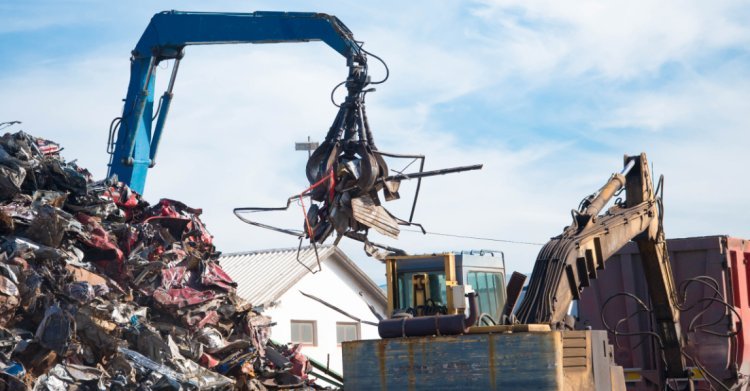The Value of Scrap: Turning Waste into Opportunity
This article delves into what scrap is, its importance, and how businesses and individuals can benefit from it.

Scrap might often be considered as waste, but its potential value tells a different story. From metal and paper to electronic components, scrap materials are playing a pivotal role in sustainability and economic growth. This article delves into what scrap San Francisco is, its importance, and how businesses and individuals can benefit from it.
What Is Scrap?
Scrap refers to materials that are discarded or considered waste after their primary purpose has been fulfilled. Common types include:
- Metal Scrap: Steel, aluminum, copper, and brass from construction sites, old machinery, and appliances.
- Electronic Scrap (E-Waste): Components from outdated electronics like phones, computers, and televisions.
- Plastic and Paper Scrap: Discarded packaging, newspapers, and plastic products.
While these materials are labeled as waste, they are often recyclable and can be processed into valuable raw materials.
Why Scrap Matters
-
Environmental Benefits:
Recycling scrap reduces the demand for raw materials, conserving natural resources. For instance, recycling aluminum saves 95% of the energy required to produce it from raw ore. -
Economic Value:
Scrap recycling is a booming industry, generating billions of dollars annually. Businesses that deal in scrap create jobs and stimulate local economies. -
Waste Reduction:
Diverting scrap from landfills minimizes environmental pollution and reduces the burden on waste management systems.
How Scrap Is Recycled
Recycling scrap involves several steps:
- Collection: Scrap is gathered from various sources, including households, businesses, and demolition sites.
- Sorting: Materials are sorted based on type, such as metals, plastics, or electronics.
- Processing: Scrap is cleaned, shredded, or melted to prepare it for reuse.
- Manufacturing: Processed scrap is used as raw material for new products.
Ways to Benefit from Scrap
- Sell Your Scrap: Many recycling companies pay for metal, electronic, or paper scrap. Check local scrapyards for rates.
- Upcycle: Turn old materials into new, functional items. For example, use scrap wood for DIY furniture projects.
- Partner with Recycling Firms: Businesses can reduce waste and generate revenue by partnering with scrap recycling firms.
Challenges in the Scrap Industry
- Sorting Technology: Efficient sorting is critical to maximize recycling potential, but it often requires advanced machinery.
- Global Market Fluctuations: Scrap prices are influenced by global demand for raw materials, leading to market volatility.
- E-Waste Hazards: Improper disposal of electronic scrap can release harmful substances like lead and mercury.
The Future of Scrap Recycling
Advancements in technology, such as AI-driven sorting systems and eco-friendly recycling methods, are making scrap recycling more efficient. Governments and industries are increasingly recognizing its importance, offering incentives for recycling initiatives.
What's Your Reaction?
















